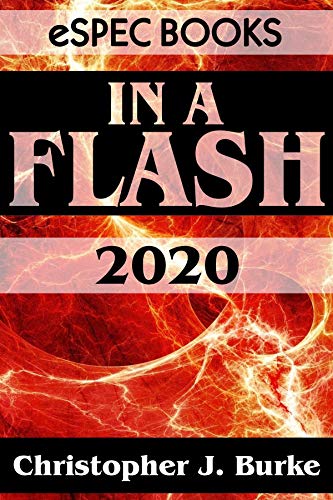What follows is a portion of the Common Core Geometry exam. Other parts will be posted on other days. Illustrations will be added at a later time when they become available.
Part 1 is was posted here.
Part 2 is was posted here.
August 2016 Geometry Regents, Part III
32. Using a compass and straightedge, construct and label triangle A'B'C', the image of triangle ABC after a dilation with a scale factor of 2 and centered at B. [Leave all construction marks.]
Describe the relationship between the lengths of AC and A'C'.
Constructions are not easy to show on this blog, but look at the illustration.
The scale factor is two, so you need to double the lengths of the sides. Start at B, open the compass to point C and make an arc. Now move to C without changing the compass and make another arc. Using the straightedge, draw the line from B through C to the new arc. Label that point C'.
Repeat the process for A to create A'. Then use the straightedge to draw A'C'. Finally, at point B, label it B' as well. That point does not move.
The relationship between AC and A'C' is that A'C' = 2AC or AC = 1/2 A'C'. The image is twice the length of the original line.
33. The grid below shows triangle ABC and triangle DEF.
Is triangle DEF congruent to triangle A'B'C'? Explain your answer.
Let trianlge A'B'C' be the image of triangle ABC after a rotation about point A. Determine and state location B' if the location of C' is (8, -3). Explain your answer.
If you plot C'(8, -3), you will see that the triangle has rotated 90 degrees counterclockwise. In a rotation, distance is preserved. C was six units away from A, C' is six units away from A. Point B is one unit above C and four units to the right. After a 90 degree rotation, B' will be one unit to the left of C' and four units above it. B' is at (7, 1)
Triangle DEF is congruent to triangle A'B'C'. This can be shown by finding the lengths of the sides or by doing a series of rigid motions. If A'B'C' is reflected over the y-axis, the image will have points A"(-2, -3), B"(-7, 1), C"(-8, -3). If A"B"C" is translated by (0, -2), then the image will coincide will DEF.
Likewise, you could reflect A'B'C' over the line y = -1 to have it coincide in a single step.
34. As modeled below, a movie is projected onto a large outdoor screen. The bottom of the 60-foot-tall screen is 12 feet off the ground. The projector sits on the ground at a horizontal
distance of 75 feet from the screen.
Determine and state, to the nearest tenth of a degree, the measure of , the projection angle
You have two right angles. The first has legs 12 and 75, and the second has legs of 72 and 75. There legs are Opposite and Adjacent to angles with the projector. You can use the Tangent function to find the angles and then find the difference of the two to get theta.
Tan x = 12 / 75
x = tan-1(12/75) = 9.09
Tan x = 72 / 75
x = tan-1(12/75) = 43.83
43.83 - 9.09 = 34.74 = 34.7 degrees.
August 2016 Geometry Regents, Part IV
35. Given: Circle O, chords AB and CD intersect at E
Theorem: If two chords intersect in a circle, the product of the lengths of the segments of one
chord is equal to the product of the lengths of the segments of the other chord.
Prove this theorem by proving (AE) • (EB) = (CE) • (ED)
The procedure to show that theis theorem is true requires you to create two triangles, by drawing extra chords, and then showing that the two triangles are similar in shape. This will make the sides proportional, and by cross-multiplying, you will get the equation in the theorem.
| Statement | Reason |
| 1. Circle O, chords AB and CD | Given |
| 2. AD and BC are drawn | Auxiliary lines can be drawn |
| 3. <1 = <2 | Vertical angles |
| 4. <A = <C | Inscribed angles that intercept the same arc are congruent |
| 5. Triangle ADE ~ triangle CBE | AA |
| 6. AE/CE = ED/EB | Corresponding sides of similar triangles are proportional |
| 7. (AE)•(EB) = (CE)•(ED) | if a proportion the products of the means equals the product of the extremes |
36. A snow cone consists of a paper cone completely filled with shaved ice and topped with a hemisphere of shaved ice, as shown in the diagram below. The inside diameter of both the cone
and the hemisphere is 8.3 centimeters. The height of the cone is 10.2 centimeters.
The desired density of the shaved ice is 0.697 g/cm
Determine and state the cost of the ice needed to make 50 snow cones.
Density is mass divided by the Volume. We know the density. We can calculate the volume. Then we can find the mass. Once we have the mass of 1 snow cones, we can multiply to find the mass of 50 snow cones and then calculate the cost of 50 snow cones. Note: Use the PI key on your calculator. Do NOT use 3.14 -- it doesn't have enough decimal places. Also, do NOT round in the middle of this problem.
Volume of a cone = (1/3) (pi)(r)2h
V = (1/3)(3.141592...)(4.15)2(10.2)=183.96067022
Volume of a hemisphere = (1/2)(4/3)(pi)(r)3
Volume = (1/2)(4/3)(3.141592...)(4.15)3 = 149.693486552
Total Volume = 183.96067022 + 149.693486552 = 333.654156772
d = m / V, m = Vd = (333.654156772)(0.697) = 232.55694727g in 1 snow cone.
Multiply by 50 to 11627.8473635g in 50 snow cones.
Convert to kilograms by dividing by 1000: 11,6278473635kg of ice needed.
Multiply by $3.83: 44.5346554022 = $44.53 is the cost
Yes, this is an insane amount of work for one question, but none is it involves anything really crazy. You just have to stick with it to the end. Remember, in questions like this one, one little error will throw off the rest of the numbers. HOWEVER, if you are consistent all the way to the end, and give an answer that matches the work you did, you may only lose 1 point for a "little" error early on.
How did you do? Any questions? (I appreciate pointing out any "typos" in my problems. Thank you.)





















2 comments:
Hello,
I was wondering how do you know when to find the mass and multiply it to the number of cones? Where in the question would help me know it is mass I am looking for?
Thank you
Post a Comment